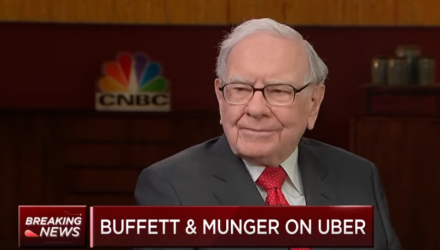Uber is ready to take the plunge into the shareholder scrutiny pool as a public company when it debuts its initial public offering (IPO) with its pricing set for today and its availability to trade on Friday, May 10. However, one investor who won’t take the ridesharing company’s IPO for a ride is market maven and Berkshire Hathaway CEO Warren Buffett.
“In 54 years, I don’t think Berkshire has ever bought a new issue,” Buffett told CNBC’s Becky Quick.
“The idea of saying the best place in the world I could put my money is something where all the selling incentives are there, commissions are higher, the animal spirits are rising, that that’s going to better than 1,000 other things I could buy where there is no similar enthusiasm … just doesn’t make any sense,” he added. “I’m not saying that what we’re buying is going to work out better, but there have to always be better things than one single issue.”
Uber’s valuation, which was duly disclosed in a regulatory filing, came in at less than the $120 billion that investment bankers valued the company at last year. Final valuation numbers were more in line with the $76 billion valuation obtained during a round of private fundraising in 2018.
The lower value comes after its competitor Lyft and other IPO peers have investors wary of their ability churn a profit as a public company.
Pinterest lost $63 million in 2018, which almost seems miniscule next to the over $900 million loss that Lyft revealed prior to debuting its IPO. Uber has been losing more than $800 million a quarter ahead of its IPO offering in mid-May.
“We believe that recent price reductions for both Uber and Lyft may be indicative of investor hesitance to invest in highly capital-intensive, deeply unprofitable and untested business models at this late stage of the economic cycle,” PitchBook analyst Asad Hussain said.
Uber hopes to come out of the starting gates better than competitor Lyft. After debuting with an opening price of $72, Lyft struggled with analyst downgrades early on in its publicly-traded existence.
However, Uber could suffer the same fate as both share similar core business models.
“When it comes to Uber, we believe there are still questions over the current car-sharing model, the economics of which are not immediately or obviously attractive for sustainable, long-term investment,” Mark Hargraves, head of Framlington Global Equities, wrote in a note.








